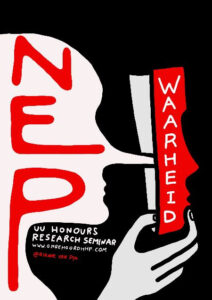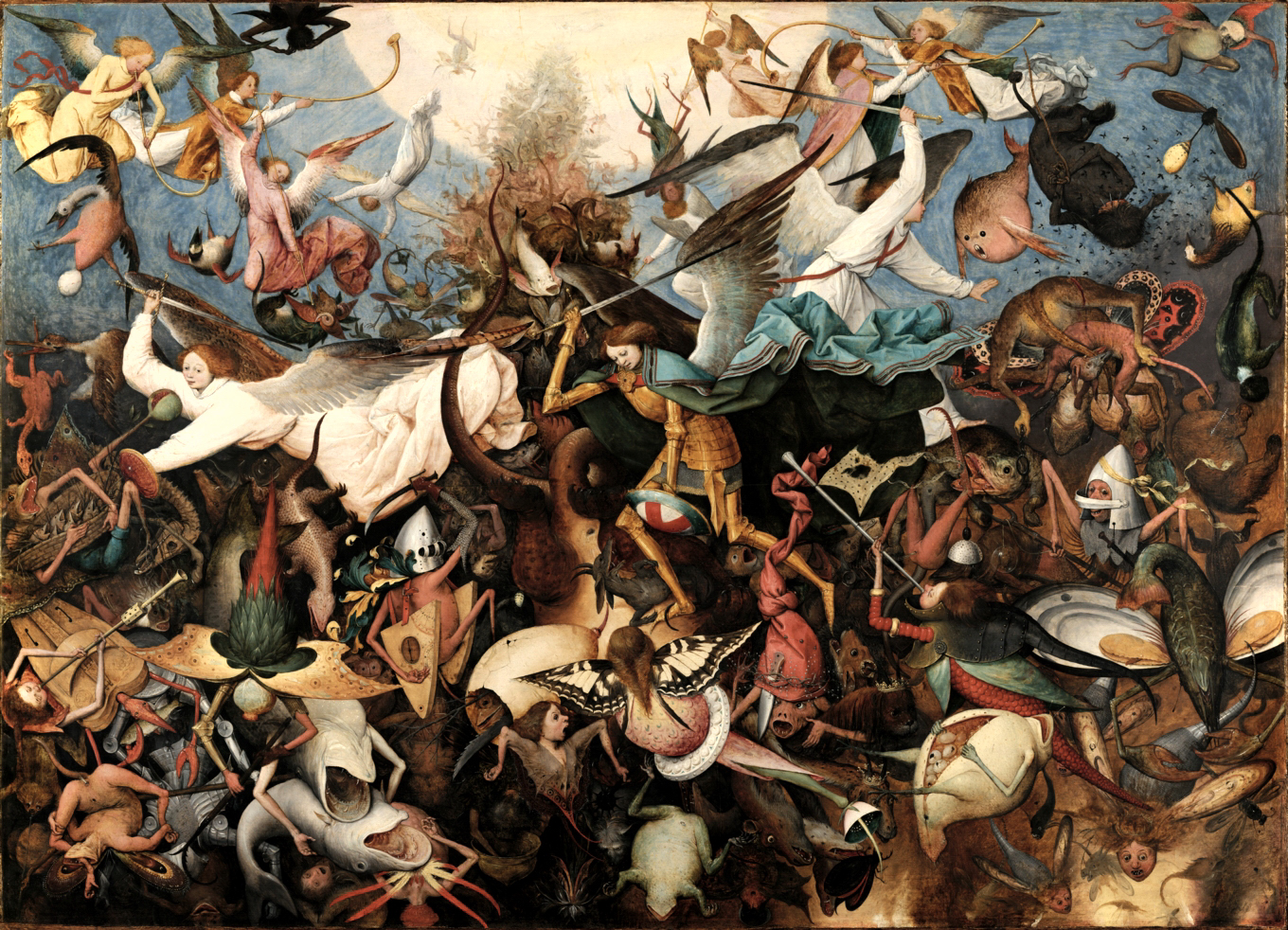2020
Honours Projects 2020
Honours Research Seminar “Fake Truth”

Beeld Rianne van Dijk, HKU
The Promise of El Dorado
By Theodoor de Bakker, David ten Cate, Jasmijn ter Haar, Angèle Jaspers, Irina Morozova, Walker Swindel, Anne Visser and Dominique de Wilde
This website presents the outcomes of our research on utopian narratives. It will take you on a journey regarding utopias by using different audio-visual resources.
The page El Dorado contains an overview of literature reviews regarding El Dorado which form the theoretical framework of the research. These reviews will provide information on the myth of El Dorado and its role. Also, a map containing several marks can be found. This map allows you to follow a journey through the utopian space of El Dorado. This audial journey constructed by podcasts is represented by Walker Swindel, Irina Morozova, Theordoor de Bakker and Dominique de Wilde.
The page Instagram contains literature reviews regarding Instagram, which serve as a theoretical framework for the created zine. In the zine, you can follow the main character Dora Dole on her journey to Instagram fame. The zine is created by David ten Cate, Jasmijn ter Haar, Angèle Jaspers and Anne Visser.
On the forum you are able to add to the discussion on utopias and narrative spaces from your own perspective. Let this website inspire you and help you form your own personal opinion.
Podcast the Good War (in Dutch)
By Isa Zoetbrood and Jet Groenendijk
On our website you can listen to the first episode of our podcast ‘The Good War’. The past months we have been working hard on this podcast to tell the story of the current developments in warfare. In total we will make 5 episodes, each time discussing a different element of these developments through fiction. The story you will hear at the beginning is not real and will probably (hopefully) not become real. Nevertheless, it contains elements of the current situation.
Fake news plays a big role in remote warfare. It becomes easier for Western states to withhold or distort information, as we have seen in the Netherlands with the attack on the village of Hawija in Iraq. Although there are other organizations, such as Amnesty and Airwars, that try to uncover the truth about Western attacks, there is a lot of fake news out there. For example, numbers of civilian casualties are often denied, distorted or ignored.
Accompanying the podcast is a website. Here you can find the sources we cite, translations of the English excerpts and more. You can also follow the Instagram; @podcast_thegoodwar. Here you can already find some information about the main character of episode 1 and will be added to throughout the season.
Using fake news to exert power in the political debate (in Dutch)
By Mo Hoogeveen, Lukas van Dongen, Emma Buijl and Floor Eijkelboom
What does it mean when a statement is labeled as fake news? And what role does your social network play of this statement? In this article we take you through an analysis of fake news in times of Corona and its use in political debate.
Documentary about Leni Riefenstahl (in Dutch)
During the Humanities Research Programme lectures, we made a documentary about the work Olympia by German director Leni Riefenstahl. Riefenstahl became known primarily for her propaganda films designed to promote the German Nazi Party. Olympia resembles Riefenstahl previous propaganda films in many ways and Germany and the party are portrayed very positively. However, we wondered if Riefenstahl’s Olympia is really much more propagandistic than contemporary Olympic documentaries. To investigate this, we compared Riefenstahl’s film with the Beijing (2008) London (2012) Olympic documentaries.
You can read our movie script here.
Articistic Truth (in Dutch)
By Joëlle Hopman and Tessa Karsten
Welcome to Joëlle Hopman and Tessa Karsten’s final product for the Honours Research Seminar. In the journal ‘Fictie: Artistieke Waarheid’, we approach the Honours Research Seminar’s theme of “Fake Truth” from a media and literary perspective. Two full articles are accompanied by several columns that all approach the theme from an artistic angle. For example, how is the fictional truth as created by the author under pressure from her fans? Where is the line between fiction and reality within the genre of autofiction? Read about the morality of non-fiction authors, the removal of reality by modern techniques and much more. Have fun reading!
University Council Elections Guide (in Dutch)
By Prerna Chaudhary and Max van Winden
During the Honours Research Seminar, Prerna Chaudhary (LAS) and Max van Winden (Dutch Language and Culture) developed a voter guide for the University Council elections from 2 to 4 June 2020. The electoral guide can be found at https://uraadwijzer.nl/ (currently unavailable). The literature review on which the electoral guide is based can be accessed via this link.
Israel-Palestine conflict (in Dutch)
By Nina Saelmans, Bram Roovers, Wytze Dijkstra, Michiel Mulder and Joshua Buitenkamp
The approach of this study was to provide a relevant overview of Dutch perspectives on the Israeli-Palestinian conflict. For this purpose, we chose a volume in which everyone wrote one chapter: The impact of the Eichmann trial on Dutch opinion by Michiel Mulder, the historiographical debate on the Six Day War between Isreal historians by Joshua Buitenkamp, academic and social perspectives on the 1973 oil crisis by Nina Sealmans, the Dutch debate on the 2014 Gaza War by Bram Roovers, and discourses on anti-Semitism and anti-Zionism by Wytze Dijkstra. Each of these chapters addresses a crucial turning point in the history of the conflict or a concept fundamental to understanding the debate. In doing so, we wanted to understand, not judge. We hope that we have succeeded in our goal and our volume can contribute to a greater understanding about perhaps the most complex conflict in the world.
You can find out about our project via this link.
Twitterchecker (in Dutch)
By Marga Don, Charley Kloosterman, Juul Petit, Heleen Rikmenspoel and Moïse Veldema
On this website you can find information about ‘Twitterchecker’, developed by Charley Kloosterman, Juul Petit, Heleen Rikmenspoel, Moïse Veldema and Marga Don. This Twitterchecker is a bot on twitter (@hrs_bot) that judges tweets and decides whether the tweet contains fake news. Then the bot tweets out the judgment. In doing so, the bot relies on a machine learning algorithm supported by qualitative research on lying language.

